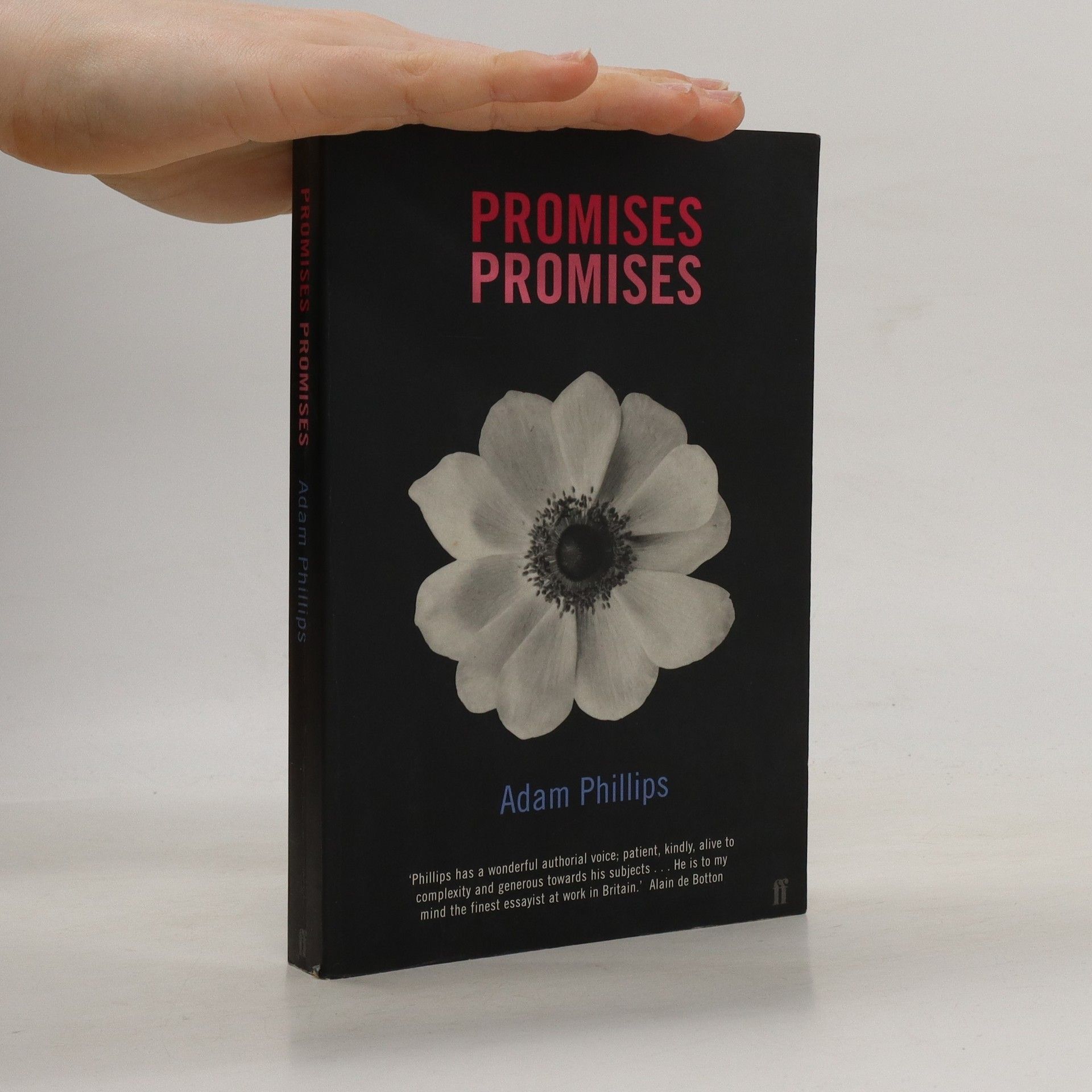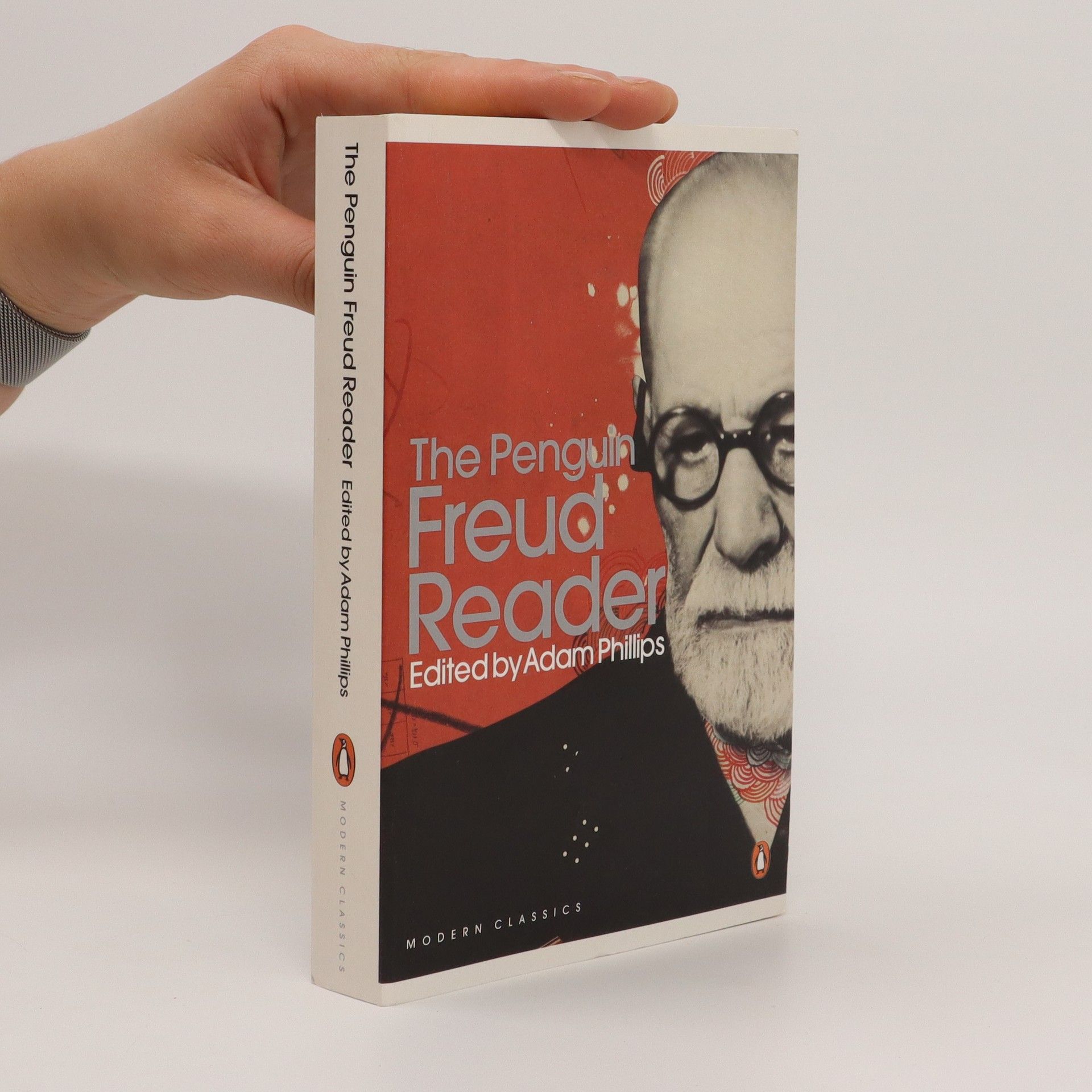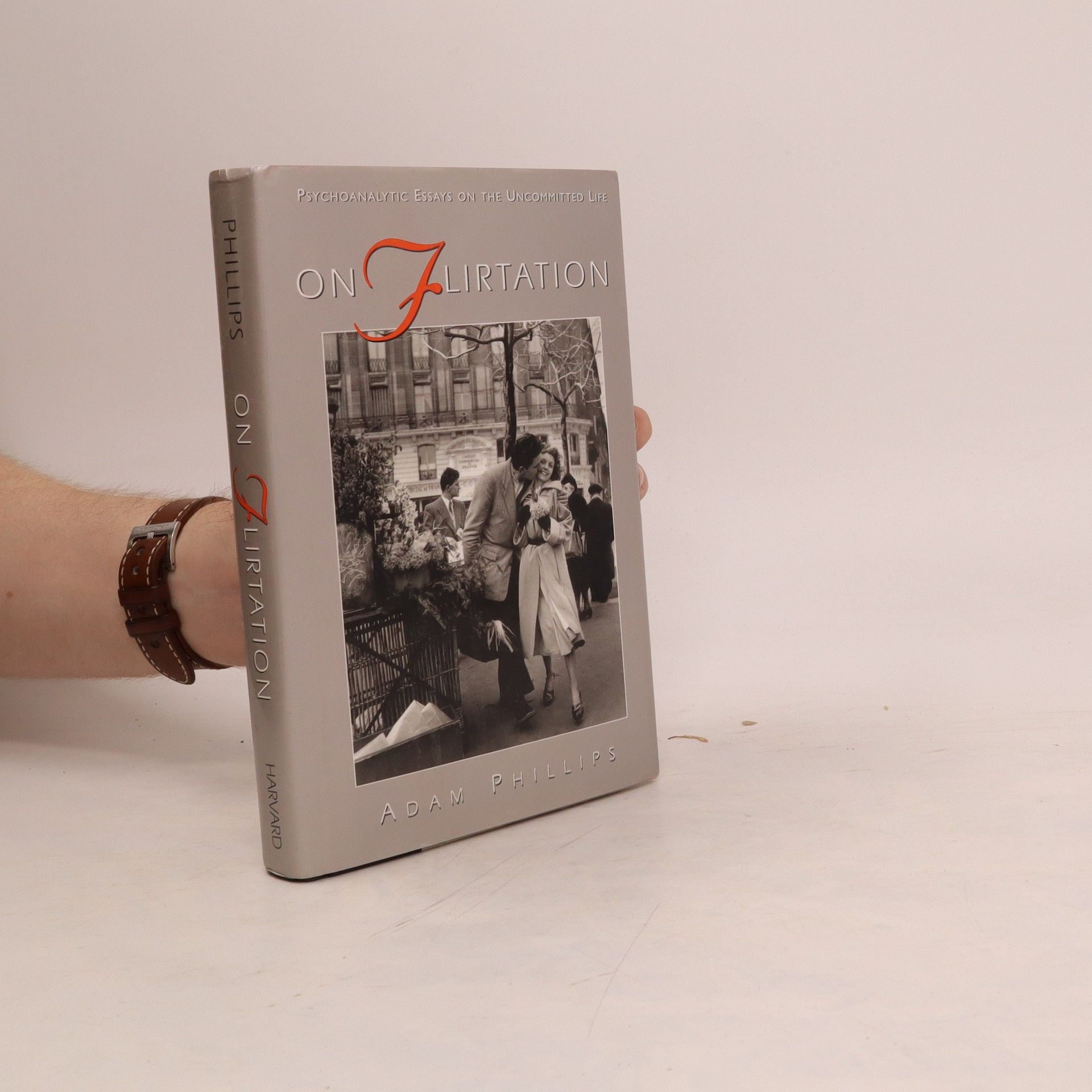Focusing on Toon Boom's Animate software, this guide offers a comprehensive approach to creating high-quality 2D animations. It covers everything from scene setup to rendering, ensuring readers can effectively navigate the interface. Additionally, "Advanced Technique" boxes provide insights into the Pro and Harmony versions, making the book suitable for users at all skill levels. The content is designed for those interested in producing animations that can be showcased across various formats.
Adam Phillips Livres
Adam Phillips est un psychothérapeute et essayiste britannique dont l'œuvre explore les complexités de l'esprit humain et sa relation avec le corps. Il aborde la psychanalyse avec une sensibilité littéraire, la considérant comme intrinsèquement liée à la poésie plutôt qu'à la médecine. Les essais de Phillips sont célébrés pour leur esprit vif et leurs aperçus à la fois troublants et profonds sur des thèmes tels que le désir, le doute et la subjectivité. Son style d'écriture distinctif, souvent comparé à celui de figures littéraires éminentes, offre aux lecteurs une exploration unique et captivante de la vie intérieure.







Becoming Freud - The Making of a Psychoanalyst
- 192pages
- 7 heures de lecture
Becoming Freud is the story of the young Freud up until the age of fifty that incorporates all of Freud's many misgivings about the art of biography. Freud invented a psychological treatment that involved the telling and revising of life stories, but he was himself skeptical of the writing of such stories. In this biography, Adam Phillips, whom the New Yorker calls "Britain's foremost psychoanalytical writer," emphasizes the largely and inevitably undocumented story of Freud's earliest years as the oldest and favored son of Jewish immigrants from Eastern Europe and suggests that the psychoanalysis Freud invented was, among many other things, a psychology of the immigrant increasingly, of course, everybody's status in the modern world
Can Squirrels Waterski?: Questions and Answers about Fantastic Feats
- 128pages
- 5 heures de lecture
Clear, engaging text allows kids to learn facts in an accessible and entertaining way. Dynamic, exciting illustrations bring the facts to life for young readers.
This book presents a day long symposium with Adam Phillips and includes two brilliant essays that reveal what is at the heart of psychoanalysis.
Supercars
Driving the Dream
"Supercars is a comprehensive guide to the planet's dream wheels. From Porsche, Ferrari and Lamborghini to Aston Martin, Maserati and Pagani, all the supercar marques and their revolutionary cars are shown beautifully photographed. With detailed specifications, key stats and stories from behind the scenes, Supercars is an essential read for any true exotic car fan." -- taken from cover.
Derek Jarman's Caravaggio -- Notes -- Credits.
Promises, Promises
- 400pages
- 14 heures de lecture
Has psychoanalysis failed to keep its promise? What are psychoanalysis and literature good for? And what, if anything, have they got to do with each other? Promises, Promises is a delightful new collection of essays which sets out to make and break the links between psychoanalysis and literature. It confirms Adam Phillips as a virtuoso performer able to reach far beyond the borders of psychoanalytic discourse into art, drama, poetry and history. This collection gives us insights into anorexia and cloning, the work of Tom Stoppard and A.E. Housman, the effect of the Blitz on Londoners, Nijinsky's diary and Martin Amis's Night Train, and provides a case history of clutter. In a final essay, the author turns to the question - why sign up for analysis when you could read a book? Promoting everywhere a refreshing version of a psychoanalysis that is more committed to happiness and inspiration than to self-knowledge or some absolute truth, Promises, Promises reaffirms Adam Phillips as a writer whose work, in the words of one reviewer, 'hovers in a strange and haunting borderland between rigour and delight.'
Becoming Freud
- 178pages
- 7 heures de lecture
This book explores the early life of Freud, focusing on his experiences and doubts regarding the writing of biographies. It delves into his psychological treatment methods, emphasizing the importance of storytelling while reflecting his skepticism about the art of capturing life stories.
The Penguin Freud Reader
- 592pages
- 21 heures de lecture
Here are the essential ideas of psychoanalytic theory, including Freud's explanations of such concepts as the Id, Ego and Super-Ego, the Death Instinct and Pleasure Principle, along with classic case studies like that of the Wolf Man.Adam Phillips's marvellous selection provides an ideal overview of Freud's thought in all its extraordinary ambition and variety. Psychoanalysis may be known as the 'talking cure', yet it is also and profoundly, a way of reading. Here we can see Freud's writings as readings and listenings, deciphering the secrets of the mind, finding words for desires that have never found expression. Much more than this, however, The Penguin Freud Reader presents a compelling reading of life as we experience it today, and a way in to the work of one of the most haunting writers of the modern age.
People tend to flirt only with serious things - madness, disaster, other people's affections. So is flirtation dangerous, exploiting the ambiguity of promises to sabotage our cherished notions of commitment? Or is it, as Adam Phillips suggests, a productive pleasure, keeping things in play, letting us get to know them in different ways, allowing us the fascination of what is unconvincing?


